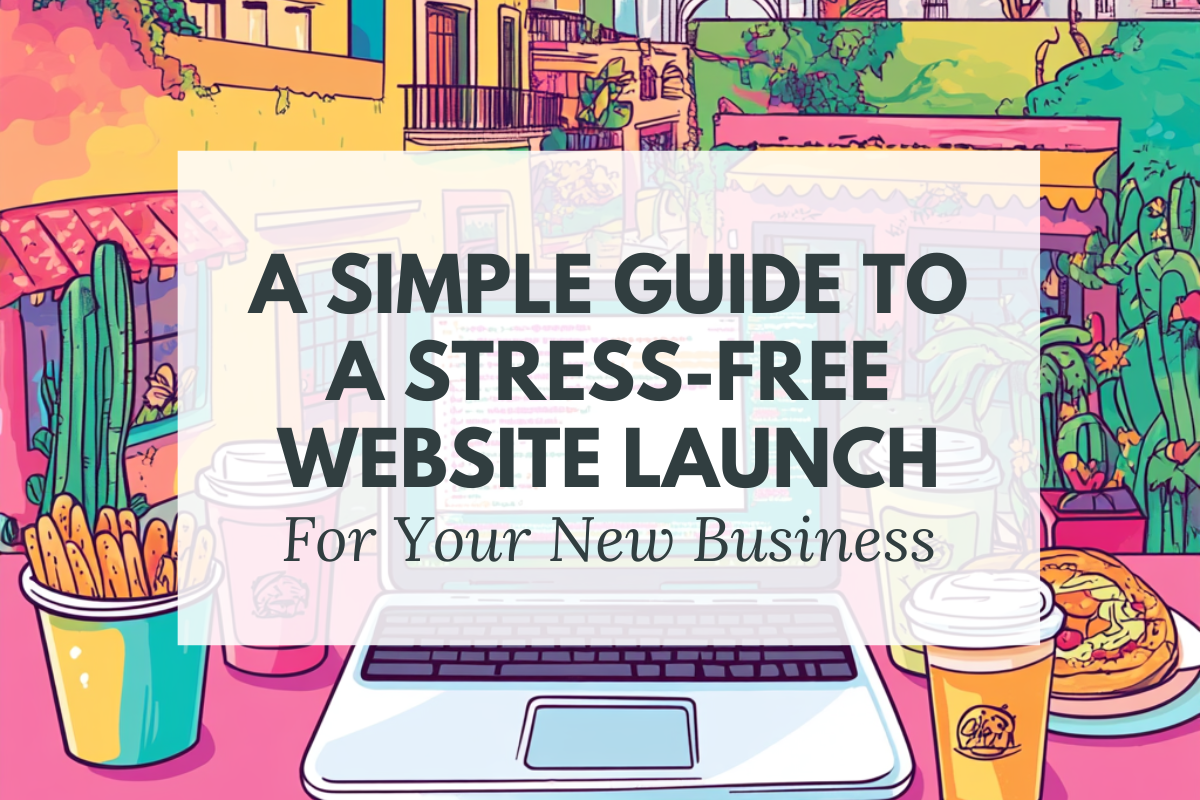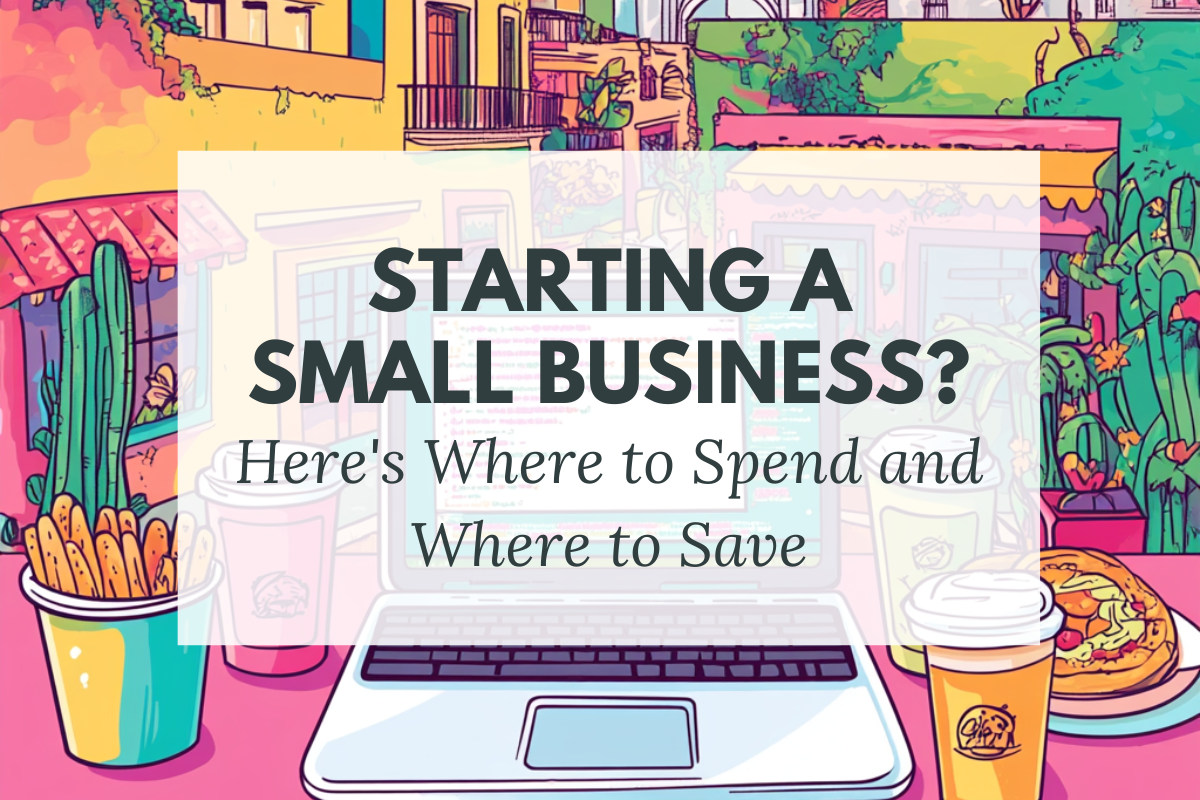Before planning your website launch, know this. One of the best strategies for succeeding in the world of online startups is by starting small (or lean, which is the fashionable team at the moment. But I use the word small. It’s straightforward and it doesn’t remind me of dieting).
When it comes to launching your website, small is the way to go. In this post, I’ll outline my top tips for helping you do that, and help you to avoid the stress that comes from trying to launch any new website.
The Best Strategy For Launching A New Business Website
Please note this post may contain affiliate links. Please refer to my disclosure for more information.
If you want to launch your website without any stress, there is one strategy you need to abide by, and it’s this:
Small but perfect (for now).
Here’s why small is good: An over-complicated or over-ambitious launch becomes muddled, it confuses your customer base, and most importantly it will take away all the confidence you have in yourself and what you are selling.
It’s really easy to avoid over-complicating things and I’ll go through some of the main stuff to avoid.
Tips To Help You Keep Your Launch Simple
The trick to a good launch is to keep things simple. So here are some of the main traps you should avoid when launching your website:
Selling too many products or services
Here’s the thing. Market research was vital in the pre-internet days when startups needed thousands of pounds of investments and were therefore high risk. An online business doesn’t need thousands of pounds and it isn’t high risk. By starting small and limiting the items you sell, you’ll gather the perfect market research. What sells well? What product doesn’t interest your customers? Stop guessing and start studying your customers. Do this before you invest thousands, and you’ll have a much better chance of your business succeeding.
Spending thousands of pounds on advertising
Expensive advertising this early on can be a mistake. You don’t know who you are selling to. You might think you know, but until you launch and you start getting sales, it is simply a guess, and you could end up wasting thousands advertising to completely the wrong market segment. So start small.
Producing complex solutions
If you are creating something technical, such as a new piece of software, you may have a grand vision in your head about what that is going to look like and why your customers are going to love it. But creating software can be an expensive and time consuming business. If you get it wrong, you will alienate your customer base and it will be very difficult to recover from that. Limit your initial development, pull back on your ambitious vision, and see how customers react to your offering. You could find that they don’t want all of the expensive things you had planned to put in there. Actually, that is pretty likely as a lot of customers prefer simple solutions over complicated ones.
Producing a complex website
All these points equally apply to your website. I have seen so many websites launched with dozens of menu options, numerous categories, and the whole look is confusing and overwhelming. Really, your initial website should just tell your customers a little bit about you and a little bit about your product or service. Plus a blog. That’s it. You don’t need all that other stuff.
Shouting about your business from the rooftops
A high profile launch is one of the most risky choices you can make for a website launch. If it works, it can be wonderful. But if it doesn’t (for example, the site becomes slow to respond to the huge number of visitors who’ve read the press release, or there’s a bug on the website) it can be catastrophic. Look at the health care website launched by the Obama administration as a perfect example of how damaging a problematic launch can be.
Planning Your Launch
Here’s what you need to consider when planning your website launch:
- Design: Are you happy with the design? Is it coherent? You don’t need professional design and branding at this stage, but make an effort to ensure the design looks like it has been “put together” rather than just thrown together.
- Technology: You need to consider where to host your website (I recommend Namecheap) and a platform you’ll be running it on (this website is on WordPress, which I’d highly recommend). If you are launching an eCommerce website, then your technology is going to be critical (I highly recommend Shopify, especially if you are beginner).
- SEO: You don’t need to be an expert in SEO at this stage, but there are some foundation tasks you can carry out that will make your life easier. If SEO isn’t your thing, hire someone from Fiverr who can get the basics on your website SEO optimized.
- Content: Plan the content you’ll be producing for your launch. This isn’t just about blog posts (though that’s obviously important). Plan the content for your About page, homepage, contact page, and any other key aspect to your website.
- Testing: Here’s a tip: test three times longer than you think you’ll need to. It’s amazing how many niggles crop up when you test thoroughly.
- Timescale: Don’t be too loyal to a timescale. Problems happen, and you might have to delay the launch.
- Tip: invest in outside help. If you’re on a tight budget, it’s still worth looking at getting some outside help to assist you with any aspect you aren’t confident in, whether that’s the technical side, SEO, writing content, design or testing. A little bit of investment now might save a lot of headaches later on.
A Website Launch Checklist
Here’s a short checklist to run through before you launch:
- Is every page on your website working?
- Have you tested the site across tablet, desktop and phone?
- Have you spell checked and grammar checked all content?
- Is your content nicely formatted?
- Do any links out to external websites work?
- Is there a clear path for visitors to take when they land on your website (this is a useful post: if you are getting visitors to your site but no one is buying, here why
- Do you have the rights to use all the images that appear on your site?
- Have you added your contact details to your site?
- Do you have the support details for your hosting company, in case you run into a problem?
- Have you set up Google Analytics?
- Have you linked out to your social media accounts?
- Do your social media accounts link back to your website?
- Do you have a sign up form to allow people to join your email list (more advice on that in this free profit funnel blueprint. which will take you through every step)
Key Takeaway
When planning your business launch, forgo perfection and you’ll forgo the stress that comes with trying to get a big, over-complicated website in front of your customers which may not actually work best for your business.
Instead, think about how you and strip back your plans to the bare bones. Get a small and simple website launched, get customer feedback, and tweak your business accordingly. You’ll find this is a faster route to success, and to your first online sale.
What To Read Next
Starting An Online Business Soon? Here Are My Predictions For How To Succeed In 2018




